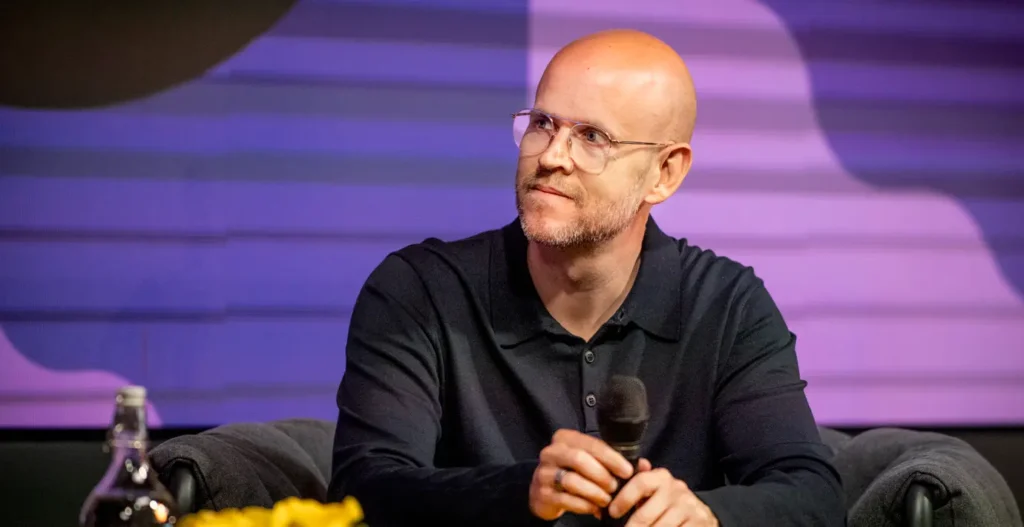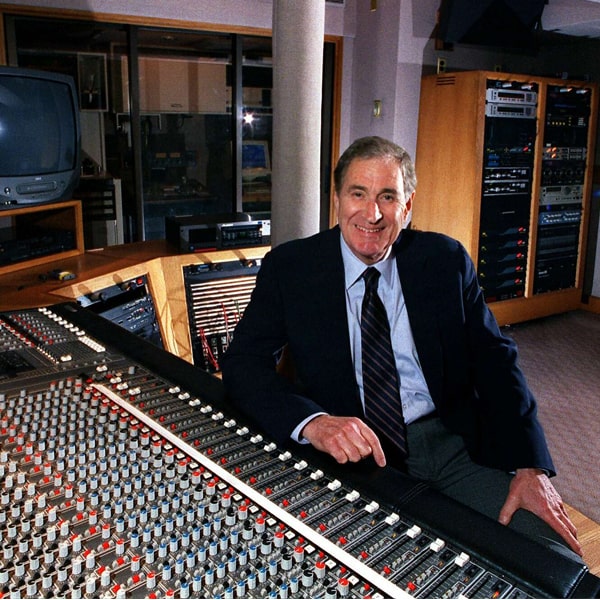Daniel Ek, the founder of Spotify who recently stepped down from his role as CEO to become Executive Chairman, has articulated an ambitious vision for the future of audio that extends far beyond traditional music streaming. His strategy is focused on leveraging technology, particularly Artificial Intelligence, to expand the platform and deliver maximum value to both creators and consumers.
The Evolution of the Platform: From Music to Comprehensive Audio
Ek defines Spotify’s overall strategy as lowering friction for users in finding and consuming content. Spotify realized long ago that the platform was not limited to just music; users in Germany, for example, started downloading audiobooks when it became possible.
The transition to an audio-first company was driven by similar problems faced by both musicians and podcast creators: the need for better accessibility, recommendations, and playback capability on any device. Even if the initial idea of combining music and podcasts in one app met with significant resistance, for Ek, it was obvious.
In his vision, the future of audio includes:
- Podcasting and Video. Spotify’s podcasting strategy is called “algeditorial,” combining algorithmic and editorial approaches, balancing discovery of new content with dependability. Spotify is actively expanding, attracting not only podcasters but also video creators.
- Audiobooks. Ek believes that the lines between podcasting and audiobooks are blurring, though the main difference remains the business model: podcasts are primarily ad-supported audio, while audiobooks are paid audio. Spotify aims to grow the audiobook market to hundreds of millions of listeners.
- Blurring Format Boundaries. Ek foresees the platform providing opportunities for multi-talented creative entrepreneurs who are not limited to a single format (e.g., a musician who is also a podcaster and book author).
Artificial Intelligence and Personalization
AI is critically important to Spotify’s future. Ek sees its role in two main areas:
- Enhancing Consumer Experience: Through AI, Spotify aims to become a “trusted friend” who not only knows music but also understands the user, offering new, totally captivating content. Ek expects that in 5–10 years, Spotify will be able to create playlists far superior to anything a human could curate, even if they spent an entire day researching.
- Lowering Barriers for Creators: AI should significantly reduce the friction required to create professional content, much like music creation previously demanded the genius of Mozart, and later the high technical skill of jazz musicians. Ek believes that millions of people who play instruments will be able to create quality music, leading to the expression of every cultural idea.
AI-driven products, such as the AI DJ and playlists created using natural language, are already among Spotify’s most popular AI features today.
Changes in Business Model and Creator Support
Spotify historically has been an instrument that helped rescue the music industry, which today generates more revenue than ever before, with streaming being its largest source.
A key element of Ek’s vision is a new monetization strategy focused on creators. As Spotify is one of the world’s largest services by number of paid subscribers (over 250 million), the company has announced an opportunity for creators to participate in premium revenue share, which was previously primarily accessible through advertising models. This move is a response to concerns that advertising (which can constitute 11%–20% of a podcast episode) degrades the user experience. Ek expects the subscription model to provide creators with a more stable revenue stream.
At the same time, Spotify continues to face criticism regarding low artist payouts (just $0.003 per stream), which has led to the demonetization of songs with fewer than 1,000 streams. Ek acknowledges that his own vast wealth, acquired through Spotify, is “deeply problematic” for him, reflecting his Nordic heritage and awareness of rising inequality.
Global Cultural Trends
Ek sees two main macro trends shaping the future of music:
- Hyper-locality: An increase in the variability of musical tastes at a local level, such as the significant growth of gospel and funk in Brazil.
- Globalization: Genres that were previously niche are becoming global phenomena, such as Latin music (Reggaeton, Bad Bunny). Ek predicts that within the next 5–10 years, Bollywood and African music will become global phenomena, given their dynamic scene.
Personal Philosophy and Controversies
Ek, who grew up in a troubled Stockholm suburb, is guided by the philosophy to “Bet on yourself.” He acknowledges that his journey has been an “emotional roller coaster,” and he is focused on building companies that have a chance to make a positive impact on the world.
Beyond Spotify, Ek is investing significantly in “moonshots” across Europe, particularly in healthcare, climate initiatives, and, most controversially, a military AI company (Helsing), into which he poured €600 million and became its Chairman. While this move drew a wave of criticism, I argue that, from the perspective of an Eastern European who has witnessed full-scale war, this is a profoundly pragmatic investment in the future security and defense of Europe itself. When existential threats arise, the need for robust defense technology tragically outweighs cultural concerns.
These defense investments sparked protests from certain artists, including Massive Attack, who pulled their music from Spotify. This action, however, highlights a deep ethical contradiction: these same artists reportedly maintained their presence on the Russian streaming service Yandex Music. For many in Ukraine, such selective activism—protesting Western defense while financially supporting the aggressor’s economy—is not just contradictory; it represents a jarring ethical failure in the face of real-world conflict.
Ek also attracted media attention for his interest in acquiring Arsenal FC, stating that he was “very serious” and had secured the necessary financing.
Regarding corporate culture, Ek promotes the idea that “speed of iteration trumps quality of iteration,” allowing Spotify to release products that may not be perfect initially, but can be rapidly improved afterward, reflecting his long-term view of development.
P.S. To delve deeper into the financial challenges faced by creators in this evolving landscape and explore practical strategies for artists to thrive despite low payouts and shifting monetization models, read our analysis: How to Survive as an Artist in the Streaming Era.






